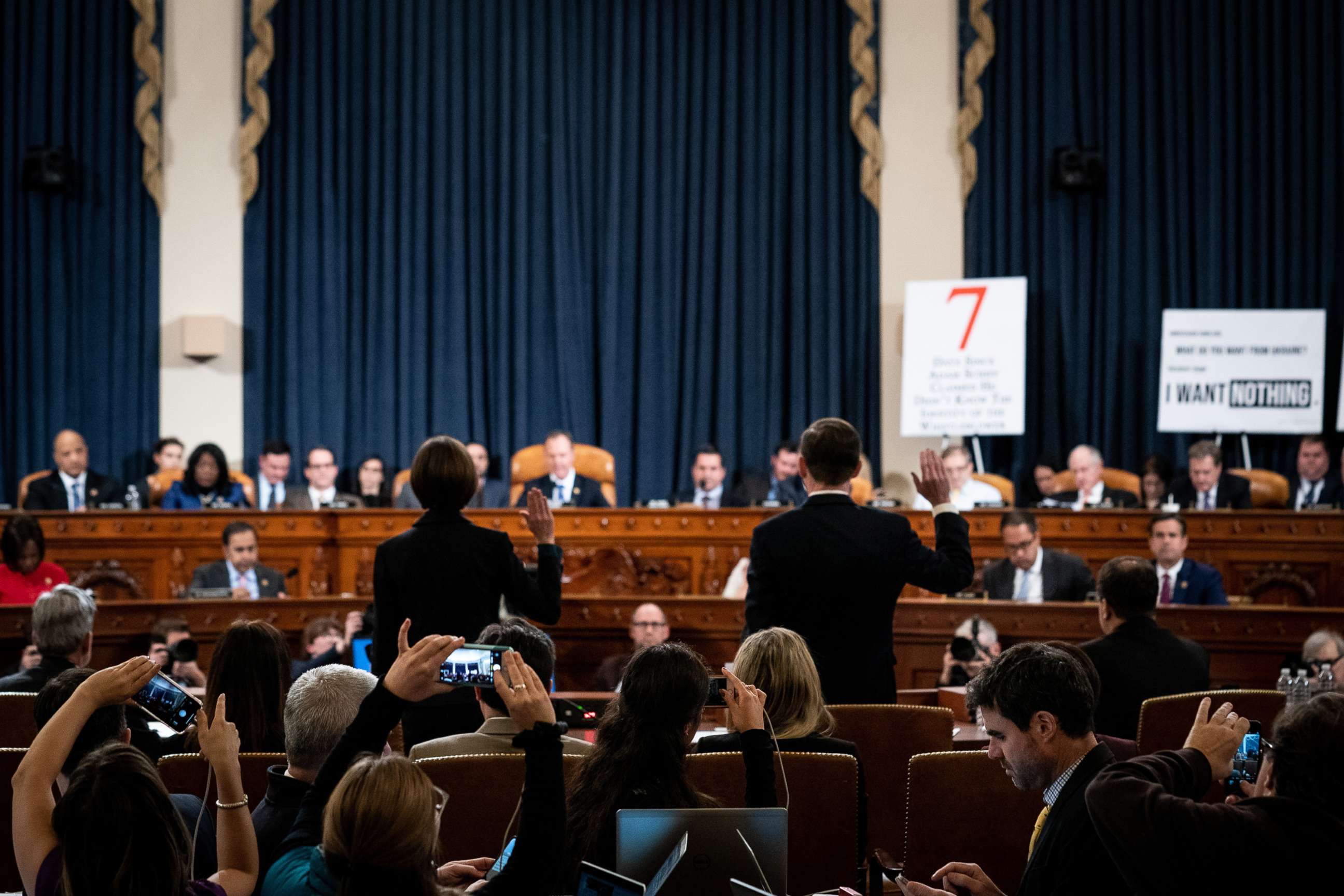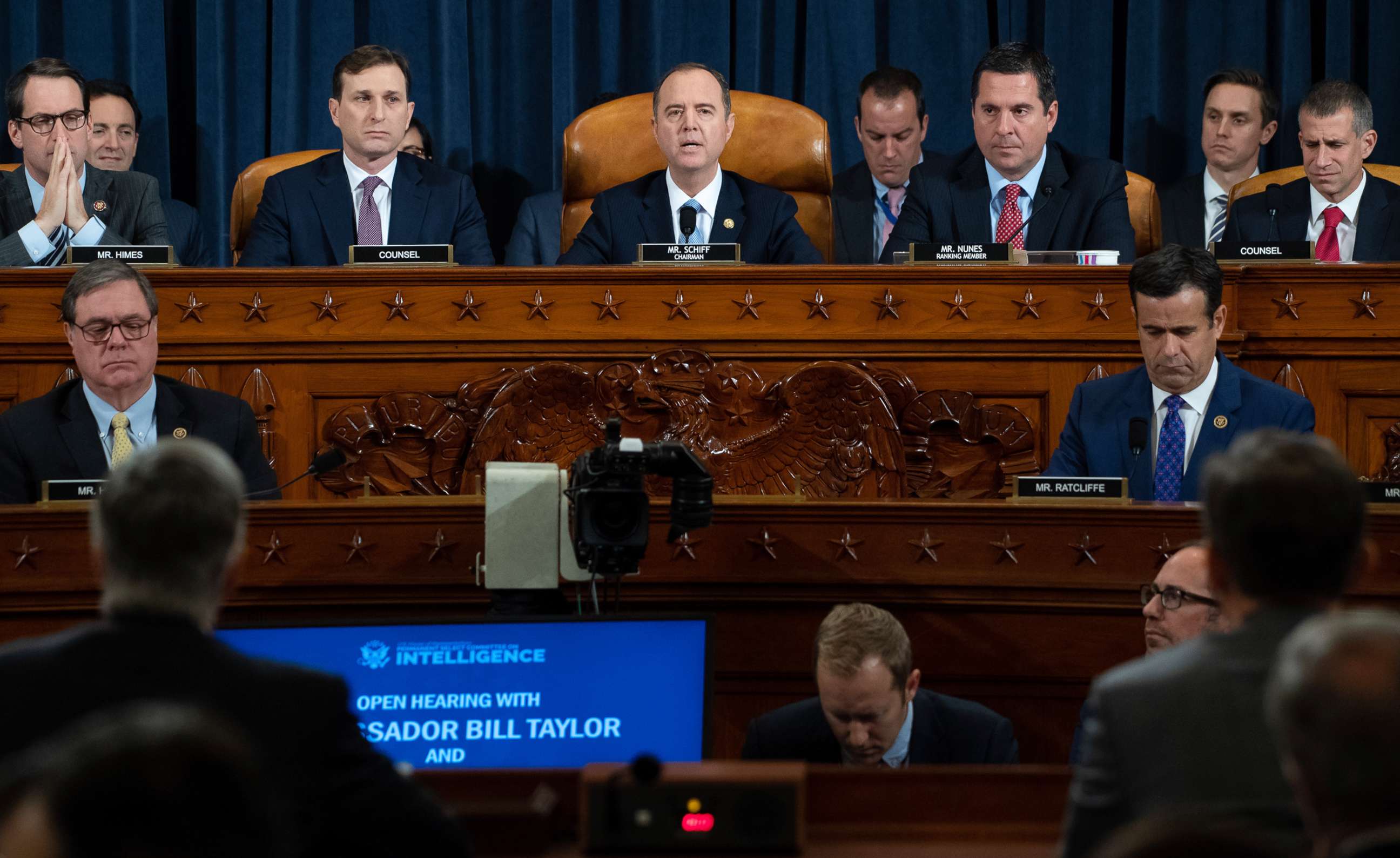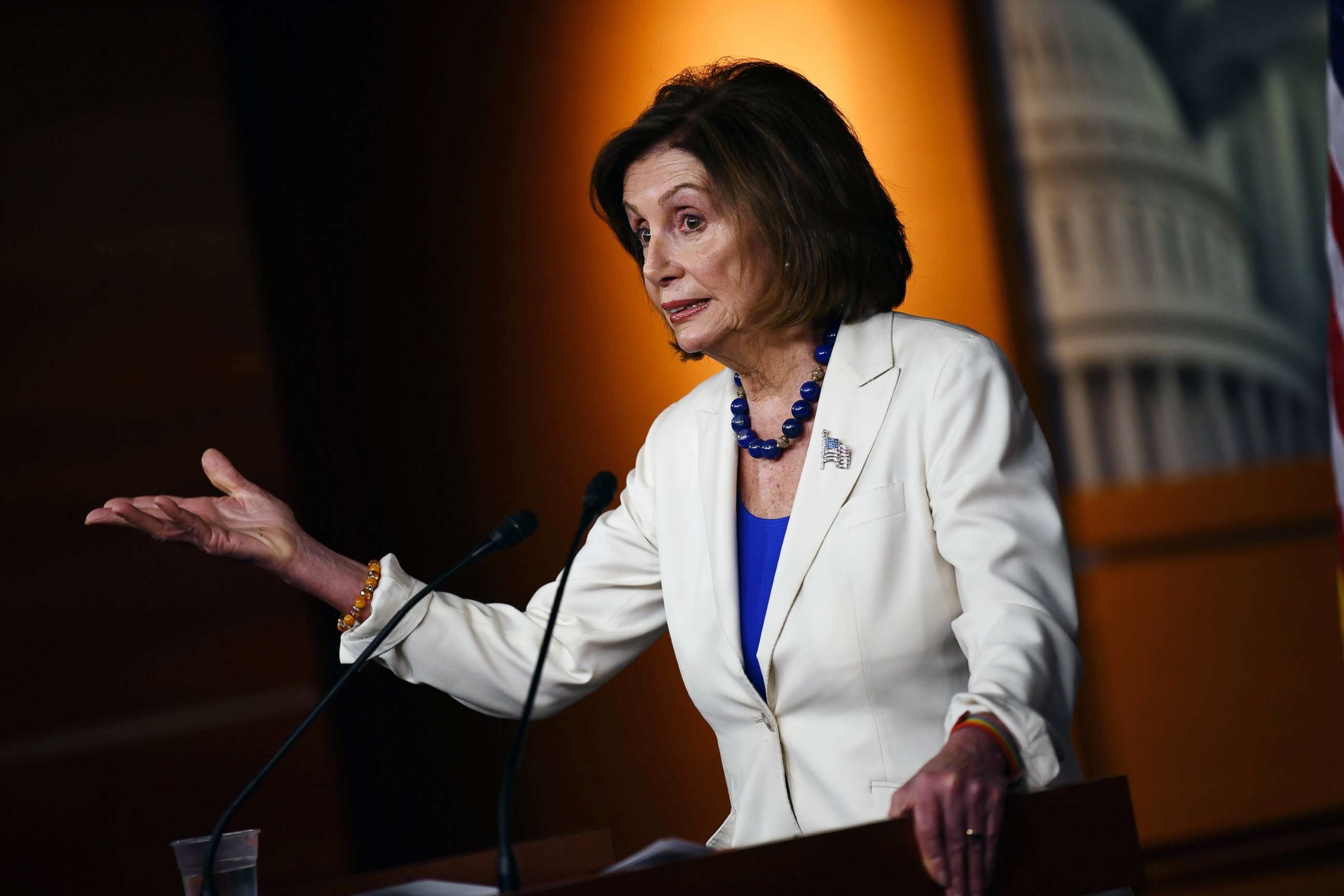What's next in the House Democrats' impeachment probe?
The House Judiciary Committee becomes the focus after the Thanksgiving break.
After a whirlwind week of public hearings, House Democrats are preparing to advance their Ukraine impeachment inquiry in the coming weeks, a process that could culminate in a floor vote on multiple articles of impeachment before Christmas Day, according to lawmakers and aides.
The House Intelligence Committee, together with the House Foreign Affairs and Oversight Committees, plans to write a report summarizing their investigation and conclusions following 17 closed-door depositions, seven public hearings, twelve witnesses and nearly 40 hours of public testimony.

The conclusions, which Republicans could challenge with a report of their own findings, would be released publicly and transmitted to the House Judiciary Committee, which could begin its work after the Thanksgiving break.
Democrats on the Intelligence Committee, which organized the slate of public hearings, said they did not necessarily need to hear from additional witnesses about President Donald Trump’s alleged efforts to withhold military aid from Ukraine to pressure the country to launch investigations into the 2016 and a potential political rival.
But Chairman Adam Schiff told the Los Angeles Times additional hearings haven't been ruled out.
“We’re not foreclosing the possibility of additional depositions or hearings, but we’re also not willing to wait months and months and let them play rope-a-dope with us in the courts,” Schiff told the Times.

Key players in the president’s efforts to pressure Ukraine have not cooperated with Democrats’ subpoenas for records and testimony, including Rudy Giuliani, the president’s personal lawyer, and Ambassador John Bolton, the former national security adviser who has asked a federal judge to determine whether he should comply with Democrats’ subpoena over White House orders not to testify.
"I think it's a difficult question to ask whether you should accept a bunch of delays from people who should be giving their testimony when you have such clear and convincing evidence already," said Rep. Sean Patrick Maloney, D-N.Y.
Democrats and aides have given no indication that they plan to slow down their inquiry to give Bolton and others an opportunity to cooperate -- and instead, have warned that their refusal to comply could lead to a potential article of impeachment charging obstruction of Congress.
A federal judge is expected to rule by next Monday on whether former White House counsel Don McGahn must comply with a congressional subpoena for his testimony in a separate case.
An order to comply could have implications for the White House’s argument and efforts to prevent witnesses from cooperating with House impeachment investigators, although it’s not clear any ruling would automatically apply in this case to current and former advisers like Bolton or Giuliani.
It’s possible some of these figures return in a potential Senate trial -- Democrats could seek to bring forward some of the people who haven’t cooperated with the House - just as Republicans and the president’s legal counsel could bring forward witnesses like Hunter Biden and the original intelligence community whistleblower that House Intelligence Committee Chairman Adam Schiff said were not relevant or necessary for his panel’s inquiry.

House Speaker Nancy Pelosi on Wednesday said Democrats “cannot be at the mercy of the courts,” but declined to outline a timeline for when the House Judiciary Committee could formulate articles of impeachment and transmit them to the full House for a vote. “We haven't made any decision,” she said. “And as I said to the president, if you have any information that is exculpatory please bring it forward because it seems that the facts are uncontested as to what happened.
”While Democrats have not laid out a definitive timeline, and Pelosi and other senior Democrats maintain that a decision has not yet been made impeach Trump, sources believe the Judiciary Committee could begin its work in early December, reviewing evidence provided by other committees and drafting multiple articles of impeachment -- which could potentially focus on abuse of power, obstruction of justice, obstruction of Congress, and bribery.
The committee, led by Chairman Jerry Nadler, D-N.Y., is expected to convene a hearing with legal experts reviewing the impeachment process and what may constitute a high crime and misdemeanor, before formally drafting any articles.
Under a resolution passed by the House, the president’s lawyers will have the opportunity to cross examine any witnesses and lay out a formal defense of the president in any hearings convened by the House Judiciary Committee.
Aides and lawmakers on both sides of the Capitol have increasingly speculated that a Senate trial could take place in January.
Republicans and the White House have actively discussed the length of a trial, and while no decisions have been made, it’s unlikely that Republicans have the votes needed to cut short a trial on the Senate floor.
ABC's Alison Pecorin, Katherine Faulders and John Parkinson contributed to this report.




